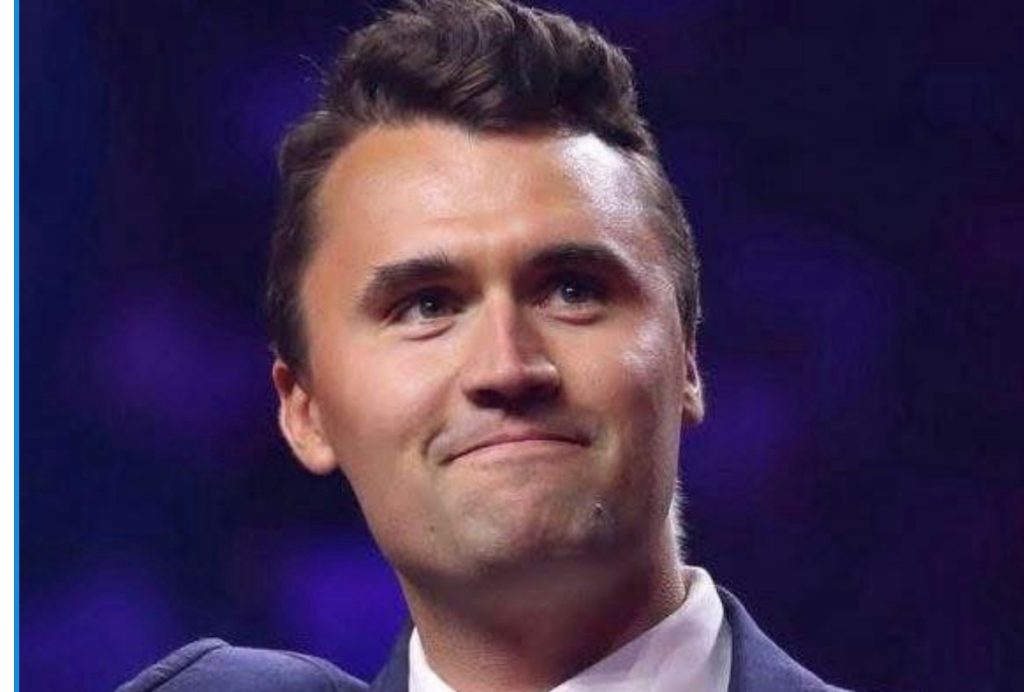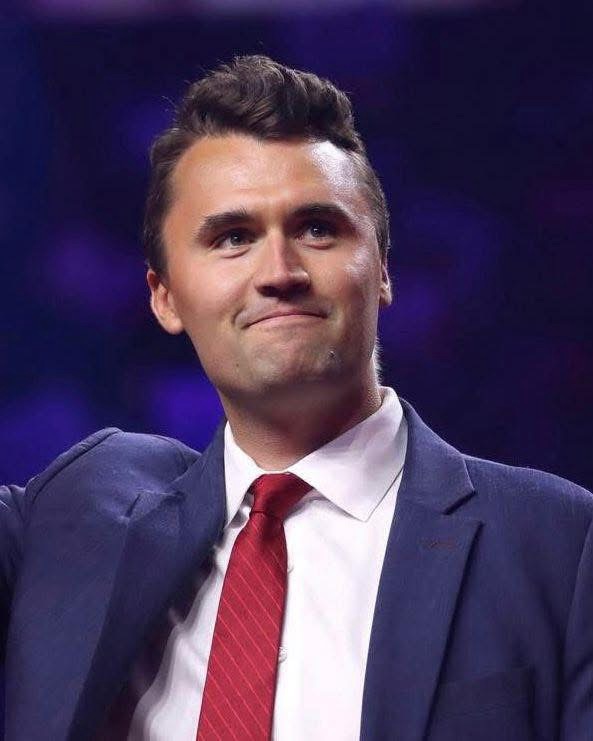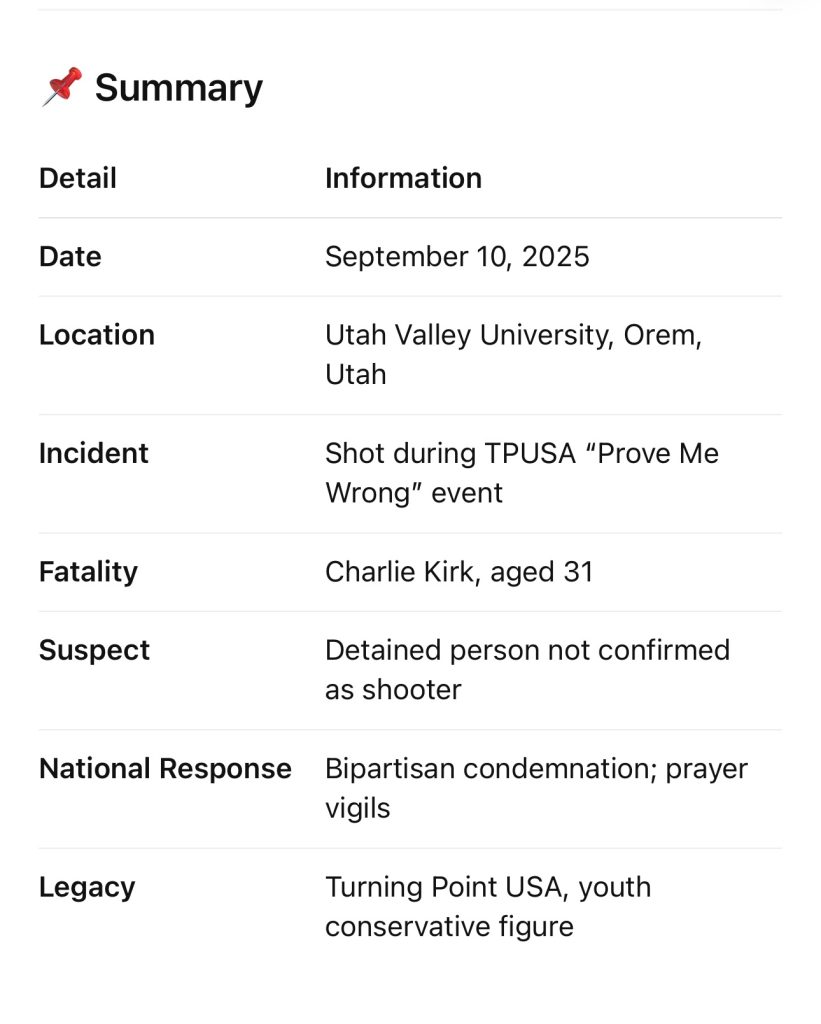OREM, Utah — Charlie Kirk, the 31-year-old conservative activist and co-founder of Turning Point USA, was shot and killed on September 10, 2025, during a public event at Utah Valley University, which officials are describing as an act of political violence.

At approximately 12:10 p.m. MDT, during his “Prove Me Wrong” debate table under a tent on the university quad, a single shot fired from a nearby building struck Kirk in the neck, captured in live video showing blood as he collapsed mid-sentence.

A suspect is reportedly in custody, although authorities later clarified that the person detained is not believed to be the shooter.
📰 Reactions & Response
Former President Donald Trump announced Kirk’s death on Truth Social, calling him “legendary,” ordering flags lowered to half-staff, and offering condolences. Flags will remain at half-staff until sunset on September 14, 2025. Bipartisan condemnation came swiftly—from Republican leaders like VP J.D. Vance and Senator Mike Lee, to Democrats such as Hakeem Jeffries and Gavin Newsom—all calling political violence unacceptable and offering prayers for Kirk’s family. Campus action: UVU canceled classes, locked down the campus, and evacuated thousands. Reports indicate minimal event security in place, raising concerns about preparedness.

💼 Kirk’s Legacy & Significance
Kirk helped popularize campus-based conservative activism via Turning Point USA, founding the organization in 2012. Known for his “American Comeback Tour” and confrontational debate style, he amassed millions of followers across social media and podcasts. His death follows a series of politically motivated attacks in the U.S., amplifying fears over escalating political violence and the safety of public figures. Kirk is survived by his wife, Erika Frantzve, a philanthropist and podcaster, and their two young children.
Broader Implications
Kirk’s death has reignited urgent conversations around political polarization, campus security, and the responsibility of public institutions to ensure safety at high-profile events. It underscores growing concerns over violence targeting political discourse and public figures in the U.S.


